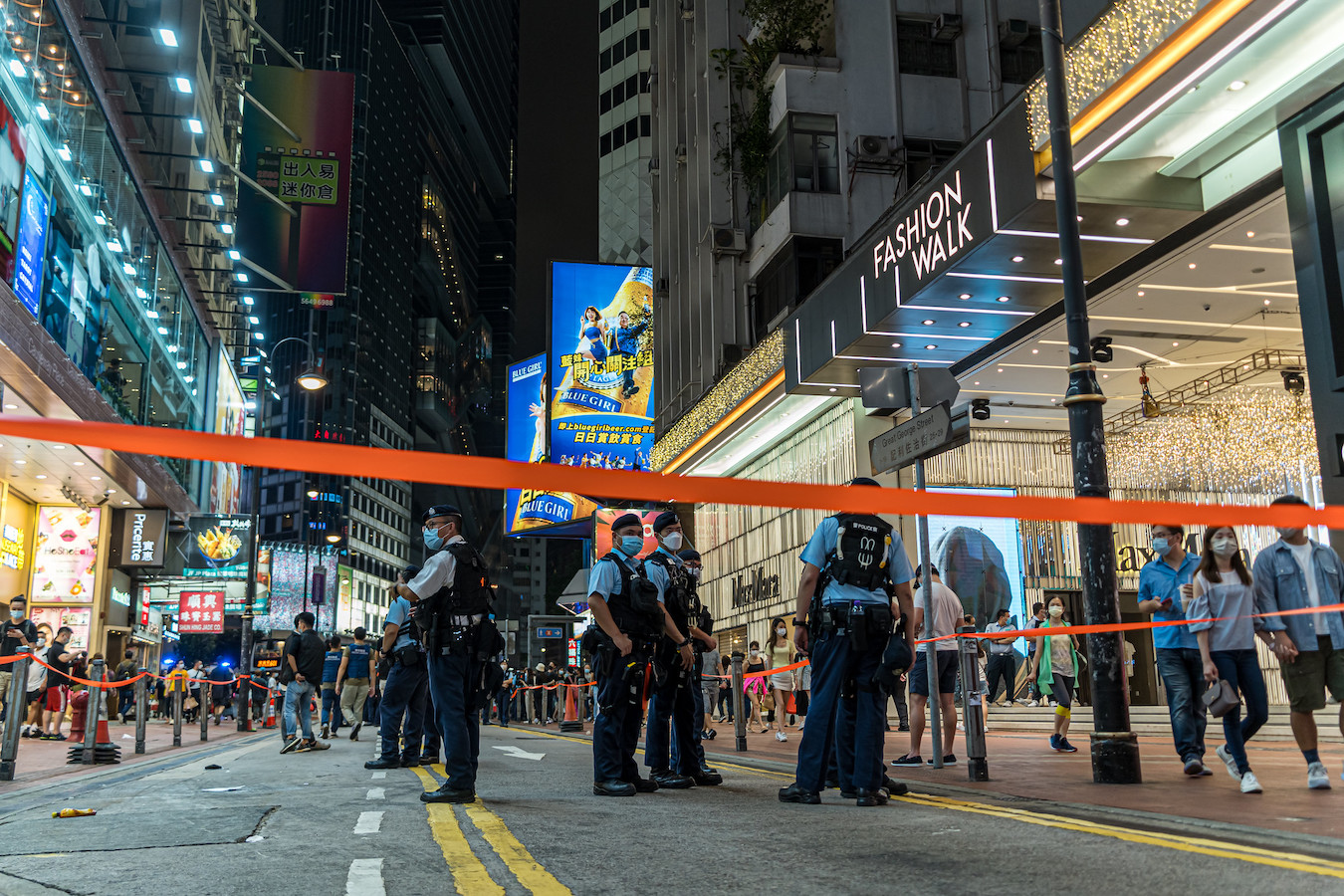by Brian Hioe
語言:
English
Photo Credit: Studio Incendo/Flickr/CC BY 2.0
THE DETERIORATION OF what is left of electoral democracy continues in Hong Kong, with plans by the Hong Kong government to decrease the number of directly elected district councilor seats from over 90% to around 20%.
First, the total number of seats will be lowered from 479 to 470. 382 of the seats will be non-elected, with 27 seats that were based on membership of specific groups maintained. 179 seats will be directly appointed by the chief executive and 176 seats will be appointed through elections for committees on crime-fighting, fire-fighting, and area districts. However, candidates will need to be pre-approved. The number of district councilors that are directly elected by members of the public will be decreased from 452 to 44.
District councilors were previously not an important site of contestation for pro-democracy forces in Hong Kong. Nevertheless, with pro-democracy candidates blocked from running for the Hong Kong Legislative Council or removed from office, and with electoral reforms that reduced the number of directly elected seats to 20 out of 90, the district council became increasingly important. Namely, the district council became one of the few places that pro-democracy candidates could still be elected, which coincided with a turn toward local politics in Hong Kong.
 Photo credit: Studio Incendo/Flickr/CC BY 2.0
Photo credit: Studio Incendo/Flickr/CC BY 2.0
Clearly, the Hong Kong government is still nervous about the potential for dissent by way of the district council, even if it already required loyalty oaths from district councilors. The shifts will take place for the next set of elections in November. There is even less space for democracy in Hong Kong going forward then, with Hong Kong’s largest national security trial taking place largely over primaries held by the pro-democracy camp to decide its choice of candidates in elections.
Nevertheless, it seems that even as there has been a further downturn for electoral democracy in Hong Kong, it may become more difficult for Hongkongers to come to Taiwan in the future. The Mainland Affairs Council (MAC) is considering extending the period of time that Hongkongers need to stay in Taiwan to be eligible for permanent residency from one year to four years. Chinese who hold permanent residency in Hong Kong would require six years in Taiwan to qualify for permanent residency in Taiwan under the proposition.
The Tsai administration pledged to aid Hongkongers seeking asylum in Taiwan during the outbreak of protests in 2019, when it was expedient for the Tsai administration to play up events in Hong Kong for the sake of campaigning in 2020 elections. But as the situation continues to deteriorate in Hong Kong, Hongkongers are increasingly seen as indistinguishable from Chinese, with Hong Kong framed as simply having become a part of China.
This is why there has been increased backlash against permanent residency plans for Hongkongers, such as occurred in May 2022 over a permanent residency plan that the MAC was considering which would have made it easier for Hongkongers to come to Taiwan. To this extent, apart from xenophobia against outsiders, there may also be the substrate of the fear of Hongkongers as economic competition.
 Photo credit: Studio Incendo/Flickr/CC BY 2.0
Photo credit: Studio Incendo/Flickr/CC BY 2.0
Indeed, in April, reports by Hong Kong’s Ming Pao stated that pro-democracy Hong Kong district councilors were denied travel to Taiwan despite having previously had visas approved in the past. This occurred despite the fact that the district councilors were not seeking asylum in Taiwan, but were only hoping to visit friends and sightsee.
Some had entered Taiwan as recently as 2021, or had applications denied despite turning in extra paperwork. For its part, the MAC claimed that the situation has changed in past years, and this was why the process for Hongkongers applying for visas has become more complicated.
At the same time, citing spying concerns as a reason for blocking Hongkongers traveling to Taiwan seems absurd when Taiwan is a democracy, and Chinese could already travel to Taiwan for business, study, or travel in the past. More generally, even as the number of Hongkongers in Taiwan is clearly on the rise in past years, backlash against Hongkongers in Taiwanese society is also increasing. It is to be seen, then, if the MAC goes through the extension, or if there is sufficient pushback from Hongkonger groups in Taiwan that this leads to the suspension of the move.

